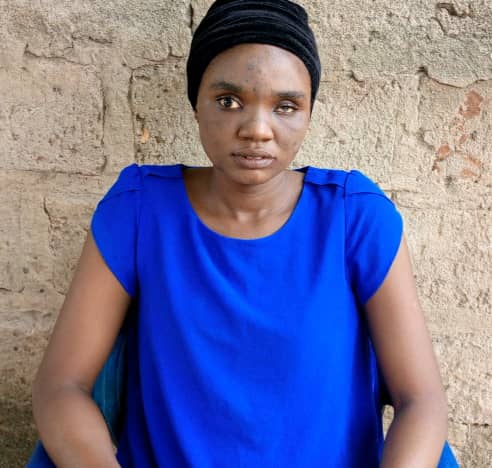From Waste to Wealth, Elizabeth's Eco-Friendly Fuel and Income Solution
Recent reports from the Food and Agricultural Organisation (FAO) rate Nigeria as having the world’shighest deforestation rate of primary forests, losing more than half of its primary forest in the last fiveyears. It further stated that between 2000 and 2005, Nigeria lost 55.7% of its primary forests, while in2020, the country lost 97.8 kilohectares of natural forest.
Deforestation is the systematic removal of forest cover due to human activities and natural occurrences.Besides being used for building construction, the bulk of the wood cut down is used for solid cooking fuelsin the home. Not only does cooking with solid fuel pollute the environment, but it has also been found to be extremely dangerous for health.
According to the U.N., in 2021, Nigeria had the most child deaths caused by pollution-related pneumonia in the world, at nearly 70 thousand. UNICEF says 40% of those deaths are a result of breathing air pollutioncaused by burning solid cooking fuels in the home.
“The figures of the scale of deforestation and the impact of solid cooking fuels in Nigeria are grim and frightening, but we are working together with our partners to change the narrative,” said Kenneth Akpan, project lead for the African Activists for Climate Justice (AACJ) programme at Oxfam in Nigeria.
“Briquettes are an alternative to fuel wood as they address the problems of deforestation and greenhouse gas emissions, while providing employment opportunities for women and youth. In 2023, we trained 65 women and youth in Nasarawa state, the north-central part of Nigeria, on briquette production, and we are just starting,” Kenneth said.
Briquette making is a sustainable and eco-friendly way to utilize waste materials and produce an alternative fuel source that can help reduce dependence on traditional fuels like wood or charcoal, thereby contributing to environmental conservation efforts.
36-year-old Elizabeth, a visually impaired woman and one of the participants of the training, shares how this newly acquired skill is building her confidence to earn a livelihood.“Since I lost my sight seven years ago when I was 29 years old, life has been challenging, especially being able to have a sustainable source of income. I was very excited when I received the invitation to participate in briquette production training. I took hold of the opportunity because I saw it as a lifeline skill to earning a livelihood,” Elizabeth shared.
“I can produce briquettes and I can teach others as well if I have the materials available. This training and skill have really boosted my confidence. People have a way of excusing those of us living with disability because they think we can’t do anything serious with our lives, but I am happy to disprove this. As I take baby steps to grow this business that benefits people in my community and my environment, I can’t do it without much-needed financing to bring to life my dreams,” Elizabeth added.
Through the AACJ project, we are working with partners to shift policy and practices to increase climate financing; to facilitate locally led adaptation like briquette production; and to reach more Elizabeths for a just energy transition that is fair and accessible for all.


